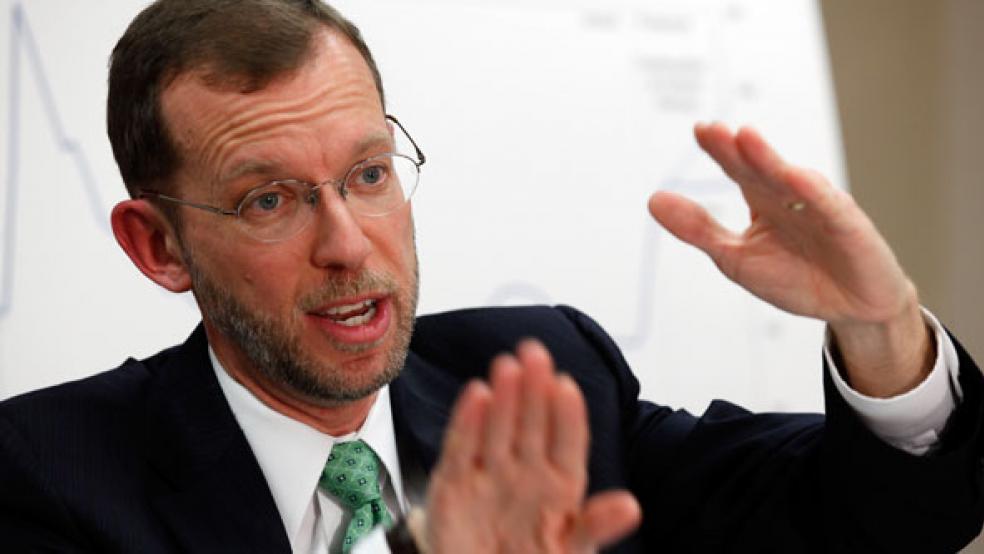The latest round of tax cuts will leave the federal budget $1.5 trillion in the red this year, the largest deficit ever recorded and the second largest ever as a share of the overall economy, the Congressional Budget Office said Wednesday.
The deficit is $414 billion deeper than projections from last August, largely due to the individual and corporate income tax and payroll tax cuts that Congress and President Obama enacted in December. Though policymakers are hoping those cuts will stimulate more rapid economic growth, the usually cautious CBO is only projecting 2.8 percent growth for 2011, which is on the low end of private forecasts.
CBO’s 10-year forecast was equally sobering for lawmakers. While a gradually improving economy will shrink budget deficits to $533 billion a year by 2014, the agency projects deficits will begin rising again soon after, as the fast-growing entitlement programs for the retiring baby boom generation and rising interest payments on the national debt swamp efforts to hold domestic discretionary spending in check.
Unless Congress and the president reach some type of long-term deficit reduction plan, total debt will increase by $7 trillion over the next decade, bringing the total debt held by the public to 97 percent of gross domestic product by 2021. That would be the highest level since the end of World War II.
“The fiscal challenge confronting us is enormous,” said Sen. Kent Conrad, D-N.D., chairman of the Senate Budget committee. “To solve this problem, it will require real compromise and a great deal of political will. We need to have both sides, Democrats and Republicans, willing to move off their fixed positions and find common ground.”
The scorekeepers at CBO, whose projections were calculated during December, admitted that their economic growth projections for this year might be on the low side since the economy now appears to be picking up steam. “If we were doing this again today, we’d slightly increase our forecast,” Doug Elmendorf, director of CBO, said during a press briefing.
The CBO analysis contains a number of assumptions based on current laws that are questionable. For instance, the projections assume the tax cuts, estate tax changes and alternative minimum tax fix that were passed in December will expire at the end of 2012, which is a presidential election year. Reauthorizing those tax breaks would add an additional $3.8 trillion to the 10-year budget deficit.
A host of corporate tax breaks included in the December law, which also expire at the end of 2012, would add $759 billion to the deficit if extended to 2021, while maintaining physician payments at their 2011 levels instead of enacting scheduled cuts would add another $249 billion to the long-term deficit.
The long-term CBO forecast reveals the futility of trying to balance the budget by focusing exclusively on non-defense discretionary spending. Over the next decade under current law, that small portion of the federal budget is slated to fall from 4.5 percent to 3.1 percent of GDP, while defense spending is slated to fall from 4.7 percent to 3.6 percent of GDP.
Entitlement spending, on the other hand, is slated to grow from 13.2 percent to 14 percent of GDP as falling spending on recession-related programs like unemployment insurance and food stamps are more than offset by sharply rising expenditures on Social Security, Medicare and Medicaid.
Related Links:
CBO Says Budget Deficit Will Reach $1.48 Trillion (The Washington Times)
Deficit to Hit New High in FY2011, Says CBO (Hot Air)
U.S. 2011 Deficit Picture Bleak; Worse May Follow: CBO (NPR)


